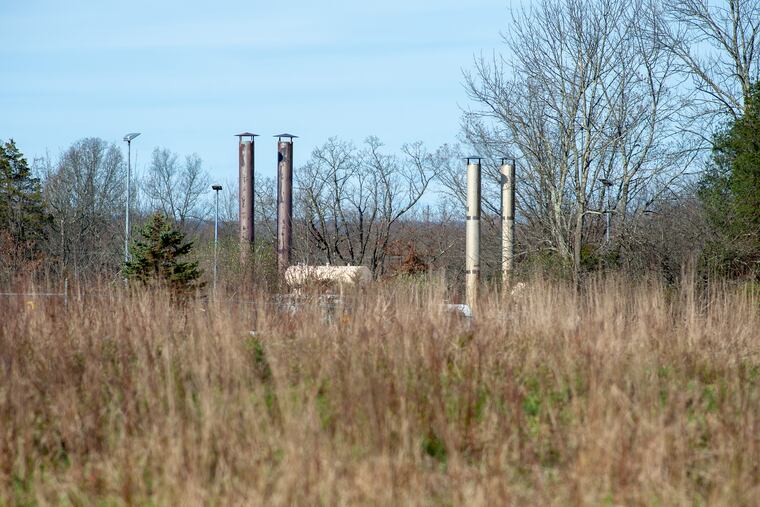Brushing aside climate concerns, U.S. clears way for gas pipeline in Philadelphia area
Brushing aside a debate about climate change, the federal government approved the project, which would repurpose an existing oil pipeline to carry natural gas to Delaware County.

Brushing aside a debate about climate change impacts, the federal government has approved the Adelphia Gateway project, which would repurpose an existing oil pipeline to carry natural gas to Marcus Hook.
The Federal Energy Regulatory Commission on Thursday, in a 2-1 vote, approved the issuance of a Certificate of Public Convenience and Necessity for the pipeline, which gives Adelphia Gateway LLC public utility status to convert an 84-mile pipeline encircling Philadelphia from oil to natural gas.
The company, a subsidiary of New Jersey Resources, acquired the underused pipeline in 2017. The 18-inch diameter pipe originally had been built to carry fuel oil from Delaware County refineries to a power plant near Bethlehem. Under new owners, the pipeline would tap into a large interstate gas pipeline in Bucks County and transmit up to 250 million cubic feet of gas per day to the Marcus Hook Industrial Complex in Delaware County.
The conversion plans include construction of a contentious compressor station in West Rockhill Township, Bucks County, which was opposed by residents and the township.
The project’s opponents had argued that the pipeline conversion would enable more natural gas extraction and consumption, creating more greenhouse gases. In his dissent, Democrat Richard Glick, one of the three FERC commissioners, said the commission “once again refuses to consider the consequences its actions have for climate change.”
But Commissioner Bernard L. McNamee, a Republican, argued that the commission does not have the authority or the expertise to determine if greenhouse gases emitted in producing fuel or consuming it should be considered as part of the pipeline’s environmental impact.
“I recognize that some believe the commission should do more to address climate change,” McNamee said in a concurring opinion. “The commission, an energy agency with a limited statutory authority, is not the appropriate authority to establish a new regulatory regime.”
The pipeline’s customers include Kimberly-Clark’s paper mill in Chester, which Adelphia says will enable the paper company to replace a coal-fired cogeneration power plant. By switching from coal to natural gas, the paper company expects to reduce its greenhouse gas emissions by 50%.
Adelphia Gateway currently expects the project to be placed into service in 2020.